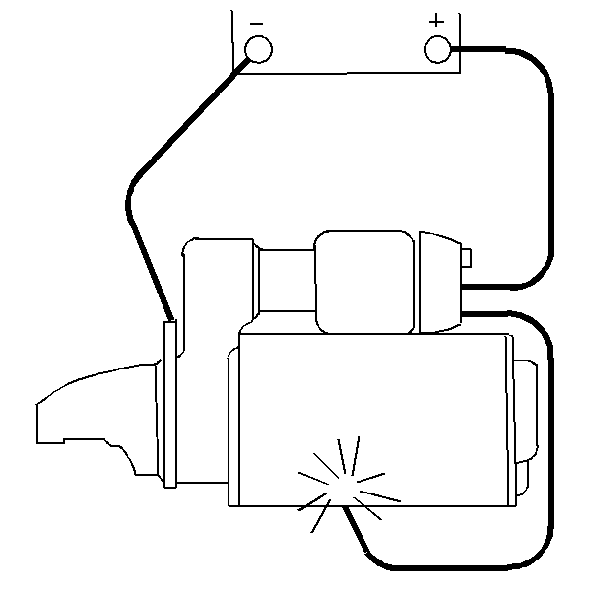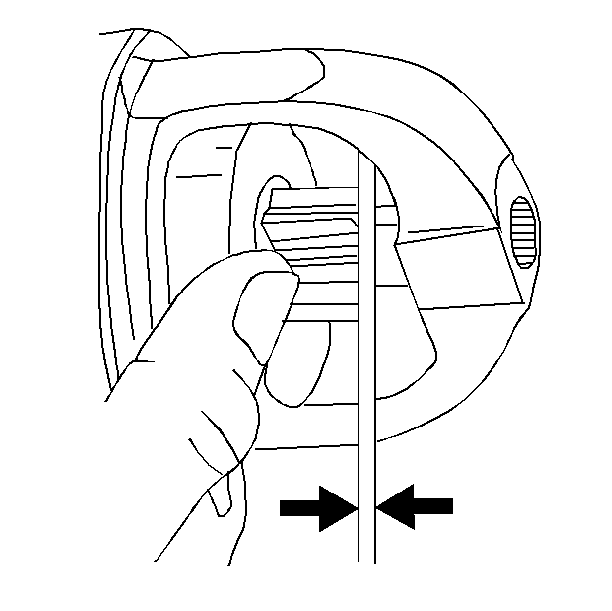For 1990-2009 cars only
The pinion clearance should be checked after reassembly of the starter motor. The pinion clearance cannot be adjusted. Improper clearance is an indication of worn parts. In order to check the pinion clearance, perform the following procedure:
- Secure the starter motor in a vise or equivalent fixture so that opening in the drive end housing is accessible for measurement.
- Disconnect the starter motor field lead from the solenoid M terminal.
- Insulate the starter motor field lead from the solenoid M terminal.
- Connect the negative battery lead to a clean metal ground on the motor housing.
- Connect a 12 V battery lead to the solenoid S terminal.
- Momentarily ground a jumper lead from the solenoid M terminal to the solenoid frame. This will shift the pinion into the cranking position. The pinion will remain in the cranking position until the jumper lead is removed.
- Push the pinion back toward the commutator end to eliminate any free movement of the pinion on the shaft.
- Measure the distance between the pinion and the pinion stop collar using feeler gauges.
- Disconnect the battery leads.
- If the clearance is outside specifications, recheck the starter motor for worn or damaged parts in shift and drive mechanism. Replace parts as necessary.
- If the pinion clearance is within specifications, reconnect the starter motor field lead from the solenoid M terminal.
Caution: Keep fingers, tools, and any other objects away from the opening in the drive end housing while making electrical connections. The strong shifting action of the starter solenoid can cause severe personal injury or damage to components as the drive pinion moves into the cranking position.


The clearance should be from 0.25-4.06 mm (0.010-0.160 in).
Tighten
Tighten the field lead attaching nut to 9.5 N·m (84 lb in).
